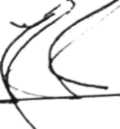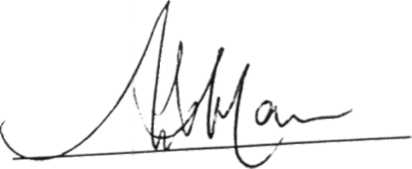1995/10/18 THE STATE VERSUS SAMUEL HOWASEB & 10 OTHERS FRANK J, TEEK, J. et HANNAH, J CRIMINAL PROCEDURE Reviews - Court has a discretion whether or not to exercise the power of review confirmed by S 304 (4 ) of Act 51 of 1977. The court has to balance the interests of the accused against the interests of the administration of justice. Where there has been lengthy delay in sending matter for review the interests of justice that litigation should come to finality must be weighed against the gravity of the punishment imposed on the accused, consider each case on its merits and reach a value judgment. Who delay was one of thirteen months and the accused were sentenced to a wholly suspended five and no point of general public importance fell to be determined the court dedined to review the matter.
CASE NO. CR 181/94 IN THE HIGH COURT OF NAMIBIA In the matter between THE STATE versus SAMUEL HOVIASEB & 10 OTHERS CORAM: FRANK et HANNAH et TEEK, J.J.J. Heard on: 1995.09.25 Delivered on: 1995.10.16 JUDGMENT HANNAH, J.: The eleven accused appeared before the Mariental Magistrate's Court sitting at Stampriet on 22nd September, 1993 charged with assaulting Salomon Tsei-Tseib on 21st May, 1991 with intent to do grievous bodily harm. They pleaded not guilty and were defended by an attorney. After a trial they were all convicted of common assault and each accused was sentenced to a fine of R120 or one month imprisonment suspended for three years on condition that the accused is not convicted of assault committed within the period of suspension. The case was not subject to automatic review and the accused did not appeal. Some thirteen months later on 7th November, 1994 the trial magistrate submitted the case record for review by this Court at the behest of the Chief Magistrate. This step was taken because of certain observations made by O'Linn, J. in
his judgment in the review case of S v Albius Sipula, (Rev. 533/94). On the direction of the Judge President the case was then placed before this Court for argument. The brief facts of the case are as follows. The accused constituted the traditional council of the Hoachanas Tribal Area, a council established more than fifty years ago. The council, so it would seem, from time to time sentenced members of its community to corporal punishment for certain offences and on 21st May, 1991 the council, consisting of all the accused, sentenced the complainant to eight lashes with a sjambok. The sentence was carried out the same day and it was in respect of this whipping that the accused were convicted of common assault. At the trial the accused's attorney indicated at the outset that the defence was that the action of the accused was not unlawful it being their belief, so the attorney said, that they were enforcing a tradition of the tribal council and were entitled to do so; but none of the accused elected to testify in order to rebut the following evidence given by the complainant: "The council had no right to assault me. Under the old regime they were entitled but the new government prohibited assault. They did not assault anyone again after I was assaulted. I was aware of their unlawfulness and also pointed it out to them before I was assaulted. Accused 3 responded by saying that I must not tell them about the new law - they will do as they think fit. " Article 8 of the Constitution reads: "Respect for Human Dignity
1. The dignity of all persons shall be inviolable. 2 (a) In any judicial proceedings or in other proceedings before any organ of the State, and during the enforcement of a penalty, respect for human dignity shall be guaranteed. (b) No persons shall be subject to torture or to cruel, inhuman or degrading treatment or punishment." In Ex parte Attorney General of Namibia: In re Corporal Punishment by Organs of State, 1991(3) SA 76 the Supreme Court was called upon to decide whether the imposition and infliction of corporal punishment by or on the authority of any organ of the State was unconstitutional . The Court held that it was. Mahomed, A.J.A. (as he then was), said at p. 93 D: " my primary conclusion, which is that the infliction of all corporal punishment (in consequence of an order from a judicial or quasi-judicial authority) both in respect of adults as well as juveniles, constitutes degrading and inhuman punishment within the meaning of article 8(2)(b) of the Namibian Constitution." Berker, C.J. and Trengrove, A.J.A. concurred in the judgment of Mahomed, A.J.A. and the Court made an order declaring: "that the imposition of any sentence by any judicial or quasi-judicial authority, authorising or directing any corporal punishment upon any person in unlawful and in conflict with article 8 of the Namibian Constitution." The Court also made a similar declaration with regard to
corporal punishment in Government schools. In S v Albius Sipula (supra) O'Linn, J. questioned whether tribal institutions can be regarded as organs of State and, on this basis, questioned whether the declaration made by the Supreme Court applied to corporal punishment authorised or directed by a tribal authority. Having raised the question the learned judge declined to answer it. However, the observations which he made in his judgment in this regard and his observations concerning the fact that tribal authorities were not afforded the opportunity to appear before the Supreme Court and might, therefore, not be bound by its decision prompted the Chief Magistrate to ask the trial magistrate in the present case to submit the record for review in terms of section 304(4) of the Criminal Procedure Act, No. 51 of 1977. Mr Geier appeared before us at the request of the Court on behalf of the accused and Ms van Niekerk appeared on behalf of the State. The Court is indebted to both counsel for their research and their lucid heads of argument. In his heads Mr Geier submitted that the declaration made by the Supreme Court in the Corporal Punishment case does apply to tribal authorities who exercise judicial or quasi-judicial authority and the effect of the order was to abrogate any power the Hoachanas traditional council may have had to impose corporal punishment. However, Mr Geier submitted that on the facts of the present case the State had not excluded the reasonable possibility that the accused had believed that they were acting lawfully and as the necessary
mens rea for a conviction was not proved beyond reasonable doubt the accused should have been acquitted. Mr Geier invited this Court to exercise its powers of review and substitute the conviction of each accused with an acquittal. Ms van Niekerk submitted in her heads of argument that the arguments in her heads to which I do not find it necessary to refer. The effect of the arguments presented by both counsel is that the only live issue of any practical importance is whether, on the evidence before him, the trial magistrate properly directed himself when he found that mens rea had been established and in these circumstances the Court raised
action of the accused in ordering that the complainant be
whipped was unlawful as they had no authority to make such
an order. Counsel referred to Proclamation 160 of 1975, as
amended, which makes provision for the establishment of
tribal authorities for Namaland and submitted that it was
clear from the terms of that Proclamation that the power to
hold a trial and sentence vests not in the tribal authority
but in the chief or headman. The Corporal Punishment case
therefore has no bearing on the matter. However, assuming
that the accused did have authority to act as they did and
assuming still further that the order made in the Corporal
Punishment case did abrogate their power and authority thus
making their action unlawful, Ms van Niekerk submitted that
the evidence of the complainant showed that the accused knew
their action was unlawful, and on this basis they were
properly convicted. Counsel advanced certain other
with counsel the question whether the Court should review the case at all having regard to the lengthy period of time which has elapsed since the case was heard and disposed of. Mr Geier submitted that the Court should review the case because it was in the interests of the accused that it should do so and it might assist traditional authorities generally to know where they stand. Ms van Niekerk also made a similar submission although she made it clear that she was not pressing it very hard. The Court then declined to review the matter and said it would give reasons later. The reasons are as follows. It was accepted by both counsel, and it is clear, that the Court has a discretion whether or not to exercise the power of review conferred by section 304(4) of Act 51 of 1977. And while the section places no time limit on the power to review the lapse of a lengthy period of time between the hearing of the case and the Court being called upon to review it may lead to the Court deciding to exercise its discretion in favour of not exercising its powers of review. In each case where a possible failure of justice is brought to the Court's attention using the mechanism provided by section 304(4) the Court has to balance the interests of the accused against the interests of the administration of justice and it will not always be the case that because the law has been determined differently in another identical or similar case thus affecting the correctness of the decision sent for review that the Court will intervene. If the Court were to countenance the re-opening of all such cases regardless of what length of time has elapsed an
unacceptable burden would be placed on the administration of justice. There must be some criterion to bring finality to a matter, whether civil or criminal in nature, and the Court should give no real encouragement to those who, to use the words of Gregorowski, J., "... wish to drag a cow long dead out of a ditch": Louw v Mining Commissioner, Johannesburg, (1896) 3 OR 190. In my view, the criterion to be adopted was correctly stated by Gubbay, J. (as he then was) in S v Mayo, 1978(4) SA 538 at 542 H: "While it is in the interests of justice that litigation should come to finality, that principle, in proceedings of this nature, must be weighed against the gravity of the punishment to which the individual was unjustly subjected. Each case must be considered on its own merits and a value judgment reached." In the present case not only was there a delay of some thirteen months from the date of conviction to the time when the record was sent for review but the accused were represented by an attorney who could have advised an appeal and the fine imposed was not only a modest one but was wholly suspended. Also, at the end of the day there was no point of general public importance to be determined. In these circumstances it was the view of the Court that it should not exercise its discretion in favour of reviewing the case and accordingly it declined to do so.
I agree FRANK, JUDGE I agree![]()
![]()




